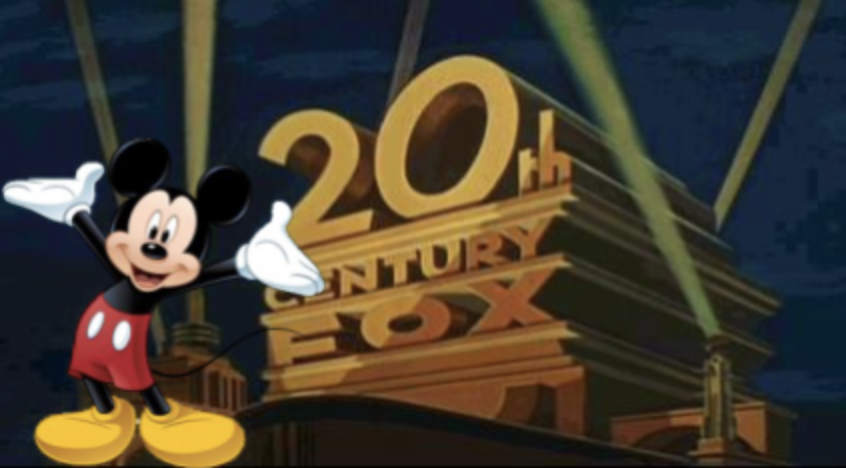Late 2017 saw one of the largest M&A deals of the year with the Walt Disney Company buying much of 21st Century Fox, including the company’s film and TV studios, cable entertainment networks, and overseas TV businesses, from the Murdoch organisation for USD $66 billion. Seen as a major shakeup of the Hollywood media industry, the deal illustrates the strategic challenges faced by traditional entertainment and media companies as consumers shift from cable television and cinema attendance to streaming services like Netflix and Amazon.
A few questions arise following this deal: is this deal good for consumers? While this deal will bring together two of the industry’s powerhouses and numerous franchises, consolidation of this kind could potentially prove negative for consumers who will face the repercussions of a more consolidated marketplace with less competition and; what is the rationale for the Disney acquisition? This may simply be that they can see the writing is on the wall for traditional distribution channels and they need to compete with the direct to consumer digital players like Netflix, Amazon, Google and Apple.
Once the only source for content, television daily viewing in the UK has declined in every age group since 2012 according to researcher from Enders Analysis, with the steepest falls among younger groups. Similarly, cinema attendance has run flat, with PwC estimating that movie attendance will grow from 172 million admissions in 2016 to 179 million in 2021, while DVD and Blue Ray will face a ‘terminal decline,’ with sales expected to decrease from £1.22 billion in 2016 to just £533 million by 2021 . Conversely, subscribers to internet streaming services have skyrocketed worldwide, with Netflix subscriber numbers reaching 109.25 million by Q3 2017 and Amazon Prime video subscribers reached 40 million in 2017.
Like many media firms, Disney began selling the majority of its content to Netflix in 2012 in return for millions of dollars of revenue. After realising the need to adapt their business model to compete with digital competitors, Disney shifted course in August 2017 by pulling all its content from the streaming site. The Mouse then announced that it would cut out the middle man and launch its own streaming service in 2019 while gaining majority control over Hulu, a streaming service co-owned by four studios, after acquiring Fox’s 30% stake in December.
For Disney, the Fox acquisition will enable them to achieve scale and shift their strategy to focus end-to-end, or production-to-broadcast services, to distribute their content directly to consumers and to truly compete against the Silicon Valley giants, including Amazon, Netflix, Apple and Google. The move should worry tech companies as Disney now has control over some of the world’s leading entertainment brands, including Star Wars, Marvel and X-Men, and will decide where to deploy them.
Why did the Murdoch organisation choose to exit now?
At the heart of this deal is the reality of fundamental shifts in consumer demand for experiences that are personalised, accessible and convenient. This is apparent not only in the media industry but across other industries such as retail where companies are forced to reinvent themselves to compete with disruptors like Amazon that place the needs and interests of the consumer at the forefront of product and service innovation. It is interesting that in the same week the Disney-Fox merger was announced, Australian retail giant Westfield was sold to France’s Unibail to create a $72 billion shopping mall group. Both deals may be wise moves by the Murdoch organisation and the Lowy family (shareholders of Westfield); both are dynastic Australian families, very successful in their business ventures, and realise that in the face of big disruption in entertainment and retail respectively, only the biggest companies will win.
It is interesting that Rupert Murdoch described the rationale for the sale of 21st Century Fox as “we are pivoting at a pivotal moment”. To “pivot” in this context is defined as a substantial change in a fundamental business tenet- a change in strategy. In other words, he is betting on the very big boys in this race to own the consumer entertainment space.
What does this mean for the rest of the entertainment industry?
We have seen considerable consolidation in the production sector with ITV and others sweeping up smaller production companies. Looking ahead, it is likely that we will continue to see consolidation where legacy entertainment companies engage in new media combinations to combat ongoing digital competition. We may also see more alliances between media powerhouses and tech companies, as digital delivery sweeps the board. For consumers, the benefits are unclear. Whilst the integration of Disney-Fox may, it is said, lead to $2billion in cost savings, it will inevitably lead them to prioritise their own content on their networks, with more fragmentation of the market and possibly less choice and higher costs for consumers.
As we await the outcome of the Competition and Markets Authority’s decision to approve the Disney-Fox merger, which most analysts predict will go ahead, competition between the remaining five large industry players, including Disney, Warner Bros., Paramount, Universal, and Sony, will likely heat up and only time will tell who the real winners will be. I think my money is on Rupert Murdoch!
Linda Sullivan is a partner and head of the media and digital technology group at Cavendish Corporate Finance.






